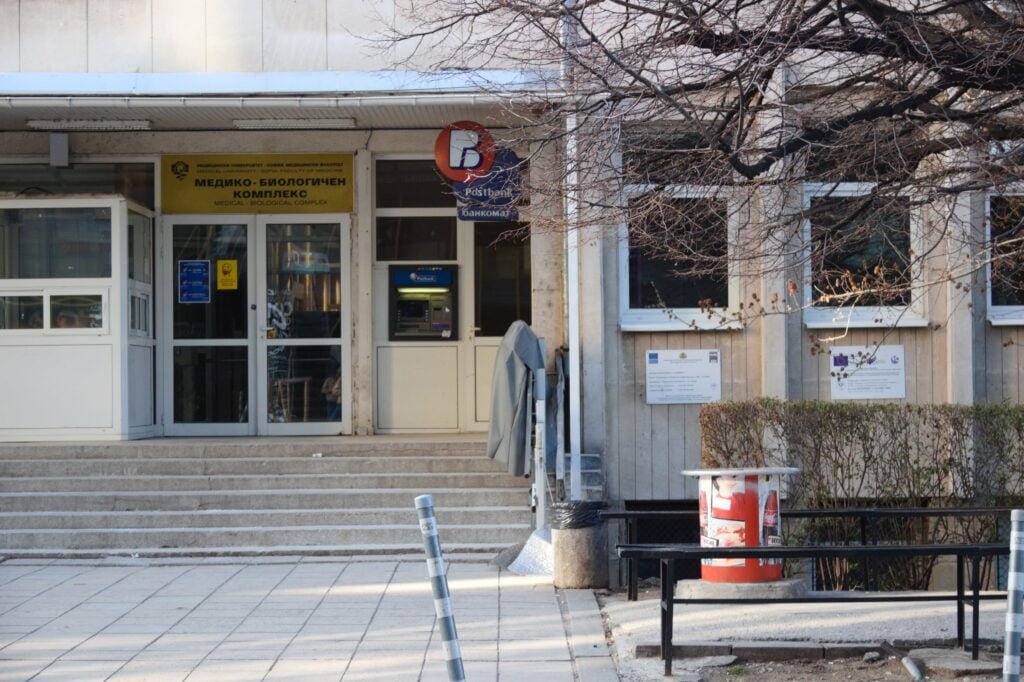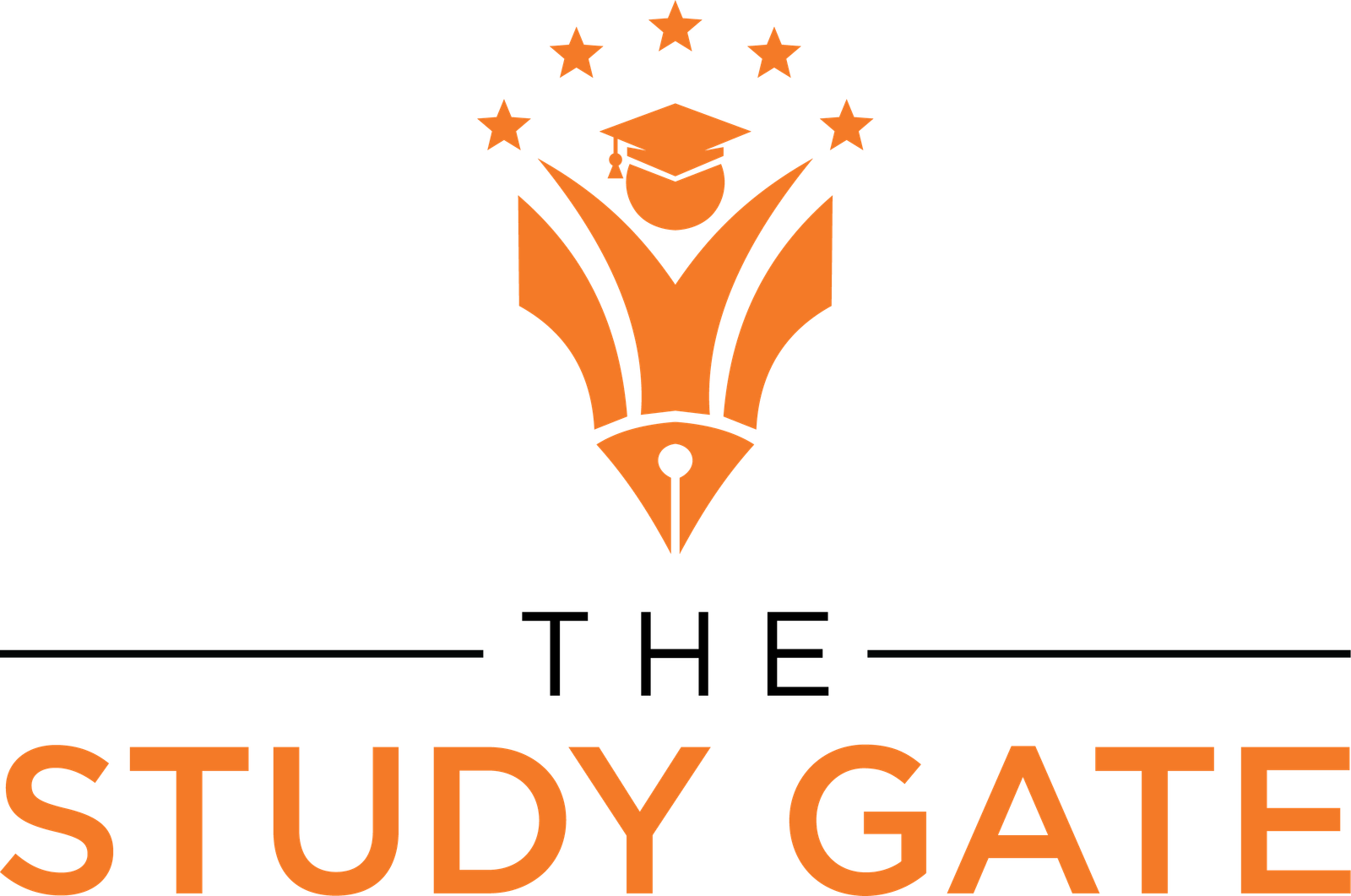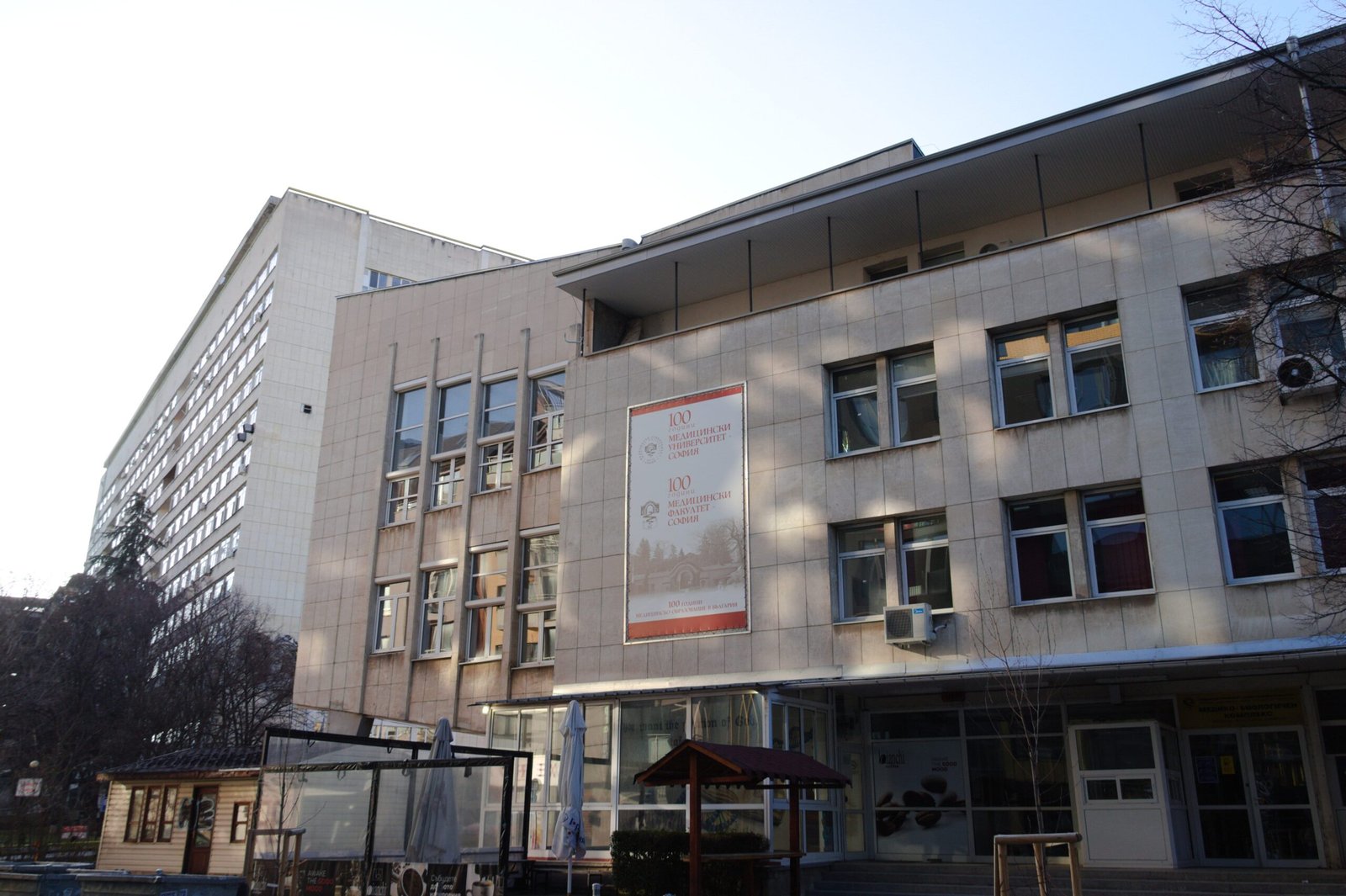Entrance Exams for Studying Medicine in Bulgaria: #Complete Guide
Are you thinking of studying medicine in Bulgaria? It’s an interesting path to take, but with the right preparation and knowledge, you can pass your medical school entry exams and make your first step toward realizing your dreams.
In this comprehensive guide, we would like to give you the most important information about studying medicine in Bulgaria from entrance exam requirements to study strategies. Let’s begin with it!

Overview of Medicine Entrance Exams in Bulgaria
However, before we discuss the ways of preparation for entrance exams to medical school in Bulgaria, let us get a clear understanding of what these exams are all about. Currently, there are six Bulgarian universities that offer medicine studies in English. This article is aimed at providing some guidance on how best to approach the entrance exams without giving away too much information about them.
MCQs are typically used during warm-up stages before students encounter more challenging sections of their tests. Besides MCQs, there could be other types of questions such as fill the gaps, match the terms, true or false and open questions. Being ready for such questions will be advantageous when writing examinations.
How to Prepare for Medical School Entrance Exams in Bulgaria
Having identified the basic concepts behind the entrance examinations we are going to focus our attention on what steps should be taken before taking any actions.
Understanding the Format and Content of the Exam
The initial thing you need to do when preparing for an exam is explore which particular test you will take. The students ought to know exactly how their examination will look like; that is format and content, including types of questions they will have to deal with beforehand so as to be able to structure their learning processes better.
Creating an Effective Study Plan
A well-conceived study plan is necessary for staying organized and covering all necessary materials. Divide every subject area into time blocks for overall reading. Allocate daily goals while keeping track of them through practice tests.
Focusing on Core Subjects
The essence of the test in question is Biology, Chemistry and English proficiency. Allocate enough time for these subjects and ensure that you understand the basic concepts clearly. It is important to get to grips with the main ideas rather than trying to memorize every little fact.
Utilizing High-Quality Study Materials
Buy study materials, such as textbooks, practice tests, and online resources, which are reliable and informative. Think about using study guides and notes done by your predecessors who managed to pass the exams perfectly well. For better preparation experience Medlink Students provide high-quality preparation resources.
Seeking Additional Support: Tutors and Preparatory Courses
Another suggestion is working with a tutor or attending preparatory courses that will help supplement your self-study. They could give useful hints and directions. Medicine Foundation Courses Europe by Medlink Students would be an excellent way of raising one’s chances of admission into the desired university.
Mastering Time Management Skills
As there is a time limit in this exam it becomes crucial to control time effectively. Take timed mock tests to improve your timing hence enabling you to answer all questions as required within the given time period.
Maintaining Motivation and Good Study Habits
Studying for medical school entrance exams can be time-consuming and difficult. To stay motivated, develop good study skills. Get enough sleep, eat well, and take breaks when needed. These factors may help you in obtaining success in the long run.
Understanding the Format and Content of the Exam
Before furthering your preparations, it is important to have a clear understanding of what the format and content of medical school entrance exams are like in Bulgaria. This will help you know what areas to concentrate on during your study and revision sessions.
These tests typically cover Biology, Chemistry, and sometimes English skills. They include multiple-choice questions (MCQs). Other kinds of questions that could be asked include: fill the gaps, match the terms, true or false, and open questions.
Reviewing different types of questions and using them in practice exercises before examination day can be helpful for improving exam results.
Creating an Effective Study Plan
An organized study plan is vital to enable you prepare adequately for the exams within a reasonable time frame. It helps you stay organized, manage your time effectively and ensure coverage of all relevant material necessary for success. Below are steps that can guide you in creating one:
Assess Your Current Knowledge: Begin by assessing what you already know about each subject area. By doing this, one can identify strong points and weaknesses thereby allocating enough time to work on each topic.
Set Realistic Goals: Break down your study plan into manageable daily or weekly goals. Inclusive of these are specific objectives per subject that leave sufficient time to cover everything essential.
Allocate Study Time: Allocate dedicated study time for each subject considering your goals and the weightage of each subject in the exam. Prioritize subjects that require more attention or those that you find challenging.
Utilize Study Resources: Collect textbooks, examination papers as well as online materials as they are some good sources for studying purposes only if they provide accurate data at the time of use.
Create a Study Schedule: Make a comprehensive study schedule that has specific time frames for each subject. Be realistic on your time allotment and take into account your own personal schedules.
Practice Regularly: Regular practice is key to reinforcing your knowledge and improving your performance. Test yourself with practice examinations and quizzes as you go along with your studies in order to assess how you are progressing and where you should concentrate more on.
Review and Revise: When you plan for regular review sessions, it becomes easier to consolidate learning and revise important concepts. In place of memorizing, focus on understanding, and use techniques such as summarizing and creating concept maps to support your comprehension.
Remember that the study plan is supposed to be flexible enough so that it can be adjusted accordingly. Therefore, do not hesitate to modify any aspect like this as you continue with your coursework in order to find out the most successful way for your studies may be.
Focusing on Core Subjects
To excel in Bulgaria’s medical school entrance exams, it is important that students concentrate on the core subjects which include Biology, and Chemistry, among others English proficiency. Your performance in these subjects will make up a large portion of your medical education; therefore they must be completely understood from top to bottom before moving forward. Here are some tips for effectively studying these subjects:
Biology:
- Major topics in Biology include cell biology genetics physiology anatomy species.
- Understand the underlying principles and concepts rather than relying solely on memorization.
- Make use of diagrams, charts, and visual aids to enhance your understanding of complex processes.
- Diagrams, charts, and visual aids are essential in enhancing the understanding of complex processes.
- Practice identifying and explaining key biological concepts and processes.
- Identifying and explaining key biological concepts and processes is a great way to practice.
- Review sample questions and practice exams to gauge your understanding and identify areas for improvement.
- To evaluate your understanding as well as identify areas needing improvement, use sample questions or practice exams (we can provide these).
Chemistry:
- Focusing on general chemistry, organic chemistry, and biochemistry concept is really important.
- The main focus should be on general chemistry principles, organic chemistry basics, and biochemistry essentials
- Understand chemical reactions, atomic structure, molecular interactions, and chemical bonding.
- If you can get the basic ideas about chemical reactions; atomic structure; interaction between molecules; bond formation between atoms;
- Practice solving problems and applying chemical principles to real-world scenarios.
- You have to make sure that you apply the laws learned by solving problems related to real life situations in chemistry
- Use mnemonics and flashcards to memorize important chemical equations and formulas.
- Review sample questions and practice exams to familiarize yourself with the types of questions you may encounter.
English Proficiency:
- Develop your reading, writing, listening, and speaking skills in English.
- Enhance skills like reading comprehension; writing ability; effective listening; active speaking
- Read academic articles, medical journals, and textbooks to improve your comprehension and vocabulary.
- For instance reading an academic article or even a textbook that has been written in English will help one improve his/her level of comprehension or vocabulary since they might contain a lot of new words or ideas
- Practice writing essays and reports to enhance your written communication skills.
- So, it’s important to be able to create a kind of essay or generate an effective report to develop good writing skills
- Listen to English podcasts, watch medical documentaries, or participate in language exchange programs to improve your verbal communication skills.
- You can choose a podcast that has been written in English; an English medical documentary or even participate in one of the language exchanges to improve on how you speak
- Familiarize yourself with medical terminology in English to ensure you can effectively communicate in a medical setting.
- Another important thing is getting yourself familiarized with the terms that are commonly used by medics as they communicate with each other; this will help you a lot when working in a place where people always make use of these words.
- By focusing on these core subjects and adopting effective study strategies, you can strengthen your knowledge and perform well in your medical school entrance exams.
- Your knowledge will then be reinforced and you will also have good grades during college entrance examinations if only you can center on these core areas and then plan for how to make your studies succeed.
Utilizing High-Quality Study Materials
To prepare effectively, quality study materials must be invested in. There are various resources which may include textbooks as discussed below;
Investing in high-quality study materials is crucial for effective preparation. Here are some resources you can utilize:
Textbooks:
The choice of textbooks is dependent on how well they cover the syllabus content required for the entrance exams with respect to each subject area; therefore go for books that have enough examples and explanations that are also easy to find within them and then are comprehensive too
Practice Exams:
Practice questions according to experienced test takers act as warm-ups since they directly lead students towards similar types such as those found during real paper administrations.
Online Resources:
There are many educational websites and online platforms that offer video lectures, interactive quizzes, etc., where you can get the most accurate information.
Study Guides and Notes:
To those who have already successfully done entrance exams, particularly in medical courses, they can share their study guides or notes with you; hence find time and ask for them
Remember, the quality of your study materials can significantly impact your understanding and performance. Choose reliable and informative resources to enhance your learning experience.
Seeking Additional Support: Tutors and Preparatory Courses
While self-study is essential, seeking additional support can greatly enhance your preparation. Consider the following options:
Tutors:
Another way of improving up a bit is to work along with someone more knowledgeable in the subjects you are not good at; for example, if it’s chemistry you are having challenges with then look for a tutor in this area thus he/she will be capable of explaining things more clearly than your teacher could have done
Preparatory Courses:
There are many preparatory courses that aim at preparing students who want to take entrance exam into medical school. These courses consist of structured lessons, study materials, and opportunities for practice. One such course is offered by Medlink Students called Medicine Foundation Courses Europe which has high success rates among students aiming for med school.
Remember, additional support should complement your self-study efforts. Choose resources and tutors that align with your learning style and preferences.
Mastering Time Management Skills
Effective time management is crucial when preparing for medical school entrance exams. Here are some tips to help you manage your time effectively:
Set Priorities:
How can the time be managed effectively in order to go through all the materials that are necessary for the examination?
So, how do you make a study schedule?
Making a Study Schedule:
Come up with a well-detailed study plan that clearly shows the time for each subject. Do not lie to yourself by assuming that you have plenty of time on your hands considering your daily activities.
These Are Some Tips To Help You Prepare A Study Schedule That Works Best With Your Life:
Divide it into smaller pieces:
Divide your study sessions into chunks that are manageable. This keeps you more alert and prevents burn out. Keep your mind active during study period breaks.
Using Timers:
You may set timers that help keep you focused while studying so as to allocate enough time for each course.
Avoid Distractions:
When studying avoid distractions. Look for a calm place where you can study comfortably, put off notifications from your phone, and never mix studies with other things.
Check and Reflect:
Regularly crosscheck your personal study program and evaluate how far you have gone. Consider what methods work best for you during your studies and make changes accordingly.
Time Management Techniques
This will go a long way in making sure that everything is covered by the exam day and most importantly, one is confident of what they are doing.
THE IMPORTANCE OF MAINTAINING MOTIVATION AND GOOD STUDY HABITS.
It takes time and effort to prepare for medical school entrance examinations, which might become very challenging at times. The key here is maintaining motivation while creating good learning habits. Here are some ideas that will help you maintain focus on your studies;
Realistic Goals Setting:
Set realistic objectives for every session or week of your revision, even minor ones should be well-recognized just to keep pressing on.
Create Supportive Environment:
Surround yourself with people who understand what you going through. Let them know about your goals or achievements in this area.
Let’s stay positive and focused on what we can do to make our study schedule work;
A break is a result of studying:
Take regular breaks during learning. Short intervals are useful for concentration and avoiding mental exhaustion. This time may be used in many ways like doing exercise, taking a bath and so forth.
Indulging yourself:
Look after your health both mentally and physically: get enough sleep, eat healthy food, have some relaxation and hobbies.
Remain Positive:
Be optimistic on the way to your goal. In case you face any challenges remind yourself why you want to be a doctor.
Check Progress:
Mark each step towards your aim with joy. Do not forget about the work which was done by you, as well as about changes that happened to it.
You will overcome difficulties in order to reach the objective of studying medicine in Bulgaria if you keep motivated and develop good study habits.
SAMPLE QUESTIONS FOR MEDICAL SCHOOL ENTRANCE EXAMINATIONS
We have prepared sample questions and study guides to help you estimate your knowledge base as well as give an idea of what medical school entrance exams in Bulgaria are like. Just drop us a line and we will help you prep for those all-important exams.
DATES OF BULGARIAN ENTRANCE EXAMS
The dates of Bulgarian entrance exams vary from year to year and universities may have different dates for their exams also. Here are the approximate entrance examination dates for all six Bulgarian institutions offering medical studies:
The period for this process is from the middle of September to and beginning of October for EU and EEA students while it is early in September and mid in September for non-EU and EEA students at “St. Kliment Ohridski” University.
Early September, mid-September (MU “St. Kliment Ohridski” in Sofia).
April beginning, mid-May, mid-June, end July, 1st Sept (MU Varna).
June starting, July ending, August ending (Trakia University in Stara Zagora).
Mid-September, Mid-November (MU Pleven).
Late April, Mid-May, Mid-June, Mid-July Retake In Mid-July And Late August (MU Plovdiv).
You should be aware that these dates might change so consult the official website of the university or ask the admissions office to avoid misinformation.
In Summary..
You should remember that success in medical school exams requires one to work hard and utilize effective study techniques. These exams can be passed successfully if you develop an understanding of their structure and question content; develop a proper study plan; focus on basic subjects; use quality revision materials; seek extra help; learn how to manage time properly; remain motivated; and cultivate good studying habits.
We concentrate on helping future doctors who want to study medicine in Bulgaria. We can assist with admission papers, do the legal and administrative footwork, provide study plans as well as exclusively supply high-quality materials for exam preparation.
If you are ready to take the first step toward your dream profession now schedule a free short call with our professional team. Let us provide all the necessary information for starting your medical journey.
“Remember: persistence, hard work, and good study planning are key factors for success here. Good luck studying medicine in Bulgaria!”

